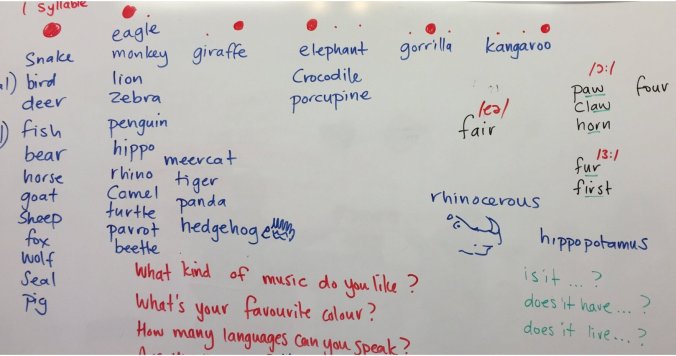
If you ever feel like you don’t want to spend another minute in front of the classroom at the whiteboard, this post from Daniel Martin might be of help. It’s also good for developing speaking, writing (and spelling!) skills and learner autonomy, assists vocabulary revision and retention, creates an enjoyable challenge and brings variety. In fact, if you don’t have mini whiteboards, something could be fashioned out of paper, though the activity does involve wiping. Perhaps tablets? Anyway, the activity is interesting, and there are a few links to other whiteboard ideas at the end of the post – a nice candidate for morning bookmarking!
Update: And here’s another post in the series by Daniel: how to use mini whiteboards for collective answers in scattergory-like games.






